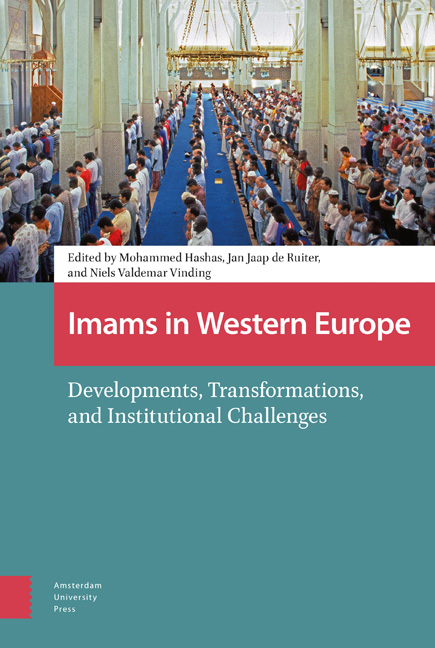21 - Efforts to Establish an Imam-Training Programme in Finland
Published online by Cambridge University Press: 06 January 2021
Summary
Abstract
This chapter describes the process of creating an imam-training programme in Finland. Finnish Muslims and Finnish Muslim NGOs took the initiative to establish imam-training programmes after conducting a survey of imams’ religious and societal training needs. It turned out that the majority of imams in Finland have some Islamic training, but it is still very basic. The imams indicated that they would welcome a Finnish training programme that would enhance their ability to work in local mosque organizations. After the survey, a limited training programme has already started, aiming mainly at enhancing imams’ leadership and societal skills.
Keywords: Islam in Finland, imam training programmes, Tatars, Church State relations, NGO’s
Introduction
Finland is unique among the Nordic countries in being the home of a small Tatar Muslim community since the 1870s; Muslims have only settled in numbers in Denmark, Norway, and Sweden since the late 1960s. The situation in Finland has, however, changed since the beginning of the 1990s, when immigration began to grow rapidly, new Muslim communities began to emerge, and pan-European debates and policy developments concerning Islam also came onto the scene. Whereas the historical Tatar Muslim community had generally not relied on external help but had organized its affairs internally, there is now an increasing number of external influences being exerted on the new Muslim communities (Martikainen, 2013b).
Muslims in Finland are at a crossroads, with different agendas being put forward by a variety of actors. Besides the issue of transnational Islamic movements, particularly in Europe, there are other key developments such as state interventions into Muslim affairs and interreligious activities with other religious traditions. As has been argued elsewhere (Martikainen, 2013b, 2014), two significant features of many of the processes concerning Islam and Muslims in Finland are the new set of actors that have only recently become interested in Islam-related topics and the changing organizational environment in which this is taking place. There is little in this new environment that can be understood through the historical relations between church and state; instead, a new constellation of religious, civil society, and state organizations and networks has emerged.
- Type
- Chapter
- Information
- Imams in Western EuropeDevelopments, Transformations, and Institutional Challenges, pp. 411 - 430Publisher: Amsterdam University PressPrint publication year: 2018



